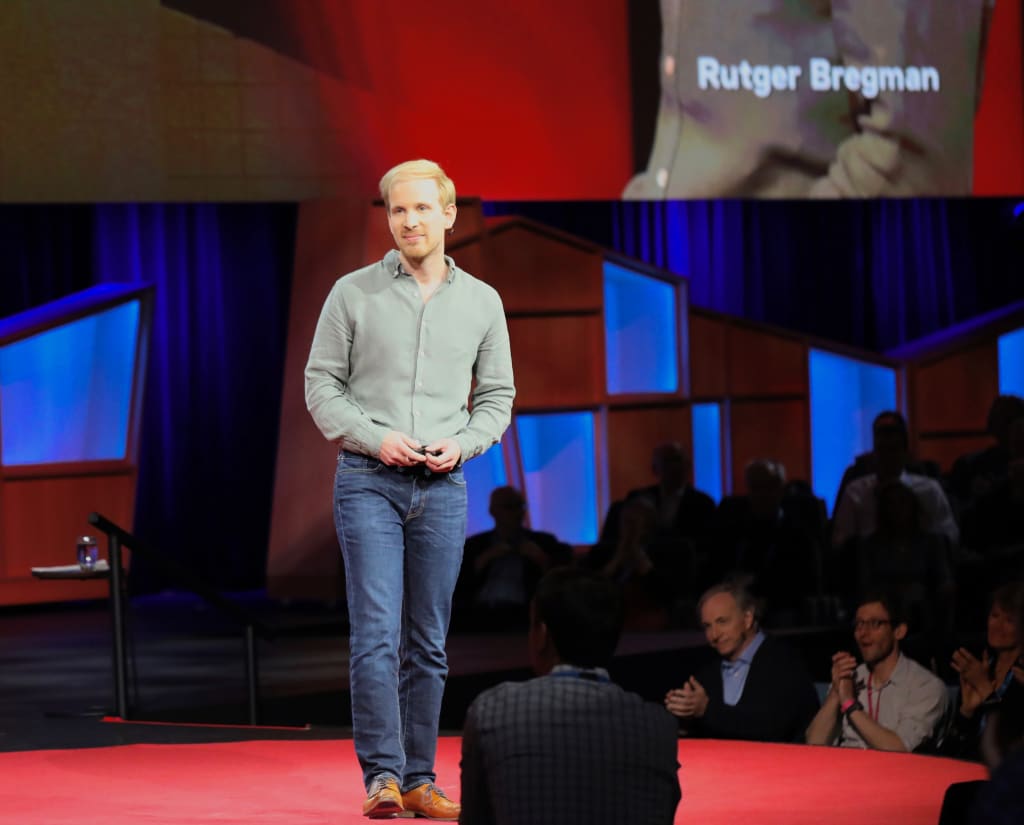The Power of Basic Income: Creating a Just and Equitable Society
Exploring the potential of a basic income with historical context, real-world examples, and a sense of hope.

I am an advocate for a more equitable and egalitarian society. I have to be; I am a die-hard Star Trek fan. I seek out as much content as I can on the subject and one of the videos I am most moved by is the TEDx talk by the popular Dutch historian and author, Rutger Bregman.
During his talk, he discussed an idea that he believes could be a major breakthrough of the 21st century: a basic income. He argued that it could bring together politicians from both the left and the right to address the shortcomings of the current social security system, and create a society where millions of people no longer live in poverty and are treated with dignity.
The concept of a basic income is not a recent one, and has been contemplated by some of the most prominent thinkers in history such as Thomas Paine, Martin Luther King, Milton Friedman, and Friedrich von Hayek.
Despite its history, the idea of a basic income is still debated today, with both its potential benefits and potential drawbacks under discussion. Nonetheless, Bregman's talk serves as a reminder that the concept of a basic income has the potential to generate significant social change and warrants ongoing discussion and exploration.
Bregman defines a basic income as a monthly grant that would cover the basic necessities such as food, shelter, and education. This universal basic income would be a right granted to all citizens, regardless of factors like financial status, gender, race, or employment status. It is important to note that this income would not be a favor or a handout, but a fundamental right, similar to freedom of speech.
Various experiments conducted across the globe have shown that a basic income can have several positive outcomes. These include reduced poverty and inequality, lower infant mortality rates, decreased healthcare costs, lower crime rates, improved school completion rates, and overall higher economic growth.
Overall, Bregman's concept of a universal basic income provides a promising solution to some of society's most pressing issues. By granting all citizens the right to a basic income, we can create a more equitable and just society where everyone has access to the necessities required to lead a dignified life.
He argues that a basic income could be the most efficient, affordable, and humane solution to poverty. He cites a pilot program in London that provided homeless individuals with a basic income, resulting in positive outcomes such as better housing, increased employment opportunities, and improved mental and physical health.
Bregman maintains that the basic income is not an unrealistic dream but a tried-and-true concept that can revolutionize society and enhance the well-being of millions. He argues that the current welfare system is inadequate and inefficient, and a basic income would empower individuals to make their own choices and lead fulfilling lives. Bregman's views are informed by research and data, which demonstrate that a basic income has numerous benefits for both individuals and society at large.
Bregman's TEDx talk is a stirring call to action for those who want to create a more equitable society. With his eloquent and passionate arguments, he makes a compelling case for basic income as a fundamental right that can lift millions out of poverty and give them the dignity they deserve.
He persuasively argues that basic income is not just a favor to those in need but a fundamental right that has the power to transform people's lives. With its proven ability to combat poverty and reduce inequality, basic income is nothing short of a game-changer.
Bregman's talk on basic income offers a hopeful and pragmatic approach to creating a more just society, emphasizing the potential benefits and real-world successes of implementing such a policy. The talk encourages individuals to take action towards creating a more equitable world.
I'll leave you with a powerful quote from the Rutger Bregman's TEDx talk,
"Now, what researchers have shown, time and time and again, by comparing a test group of poor people who receive free money, and a similar control group, so that they could see the effects -- time and time again, they have shown that free money results in -- well, lower inequality, lower poverty, obviously; but it also results in less infant mortality, lower health care costs, lower crime rates, better school completion records, less truancy, higher economic growth, better emancipation rates, and all kinds of other positive social outcomes."
Watch the video here:





Comments
There are no comments for this story
Be the first to respond and start the conversation.